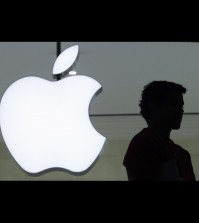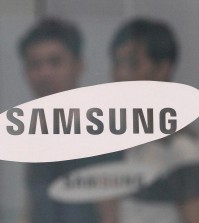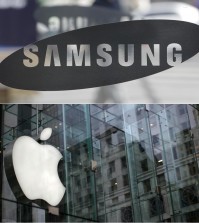- California Assembly OKs highest minimum wage in nation
- S. Korea unveils first graphic cigarette warnings
- US joins with South Korea, Japan in bid to deter North Korea
- LPGA golfer Chun In-gee finally back in action
- S. Korea won’t be top seed in final World Cup qualification round
- US men’s soccer misses 2nd straight Olympics
- US back on track in qualifying with 4-0 win over Guatemala
- High-intensity workout injuries spawn cottage industry
- CDC expands range of Zika mosquitoes into parts of Northeast
- Who knew? ‘The Walking Dead’ is helping families connect
Samsung may cut chip production in U.S.
By Kim Yoo-chul
Samsung Electronics plans to reduce processor chip production and investment in its plant in Austin, Texas, this year due to sluggish demand from Apple and rising inventory, according to company and industry officials Tuesday.
The officials said Samsung will cut its investment in the plant to 1 trillion won for this year as it has failed to win any major orders.
Apple is cutting its reliance on Samsung-manufactured processors, a key part in handsets and computers.
The operating rate at the factory ― which employs more than 5,500 people and generates $1.5 billion in revenue annually ― was below 70 percent in February.
Samsung has designated the Austin plant to produce only processor chips.
“Samsung will invest less than 1 trillion won in its chip facility in Austin depending on the market situation,” said an official at one of Samsung’s technology affiliates by telephone, asking not to be identified.
“The utilization of the Austin line isn’t that high as Apple orders are disappointing. Samsung should have greater flexibility in operating its chip lines in Austin,” he stressed.
“This year, Apple will start using products from Taiwan’s TSMC (Taiwan Semiconductor Manufacturing), so the Korean company needs to find alternative customers,” said an industry official.
He said that Samsung has invested a total of $13 billion in the Austin plant since 1996, the firm’s biggest foreign investment so far.
A spokesman declined to comment on this figure, citing the sensitivity of the issue.
The worsening performance of the Texas plant is considered another reason for Samsung’s move to cut production there.
In the first quarter of 2013, the plant posted a net loss of 3.5 billion won, with revenue decreasing from 837 billion won to 659 billion won year-on-year, Samsung said in a regulatory filing to the Korea Exchange. Its net losses in 2012 reached 86.8 billion won.
A leading brokerage house said that Samsung’s processor chip business will have another difficult time this year.
“As Samsung diverts its resource away from the 20-nanometer (nm) level chip technology to accelerate 14nm and 16nm, the chance of it winning a significant portion of Apple’s business in 20nm is slim. Furthermore, the optimistic outlook from TSMC also suggests strong demand from Apple,” Bernstein Research said in a note to clients.















